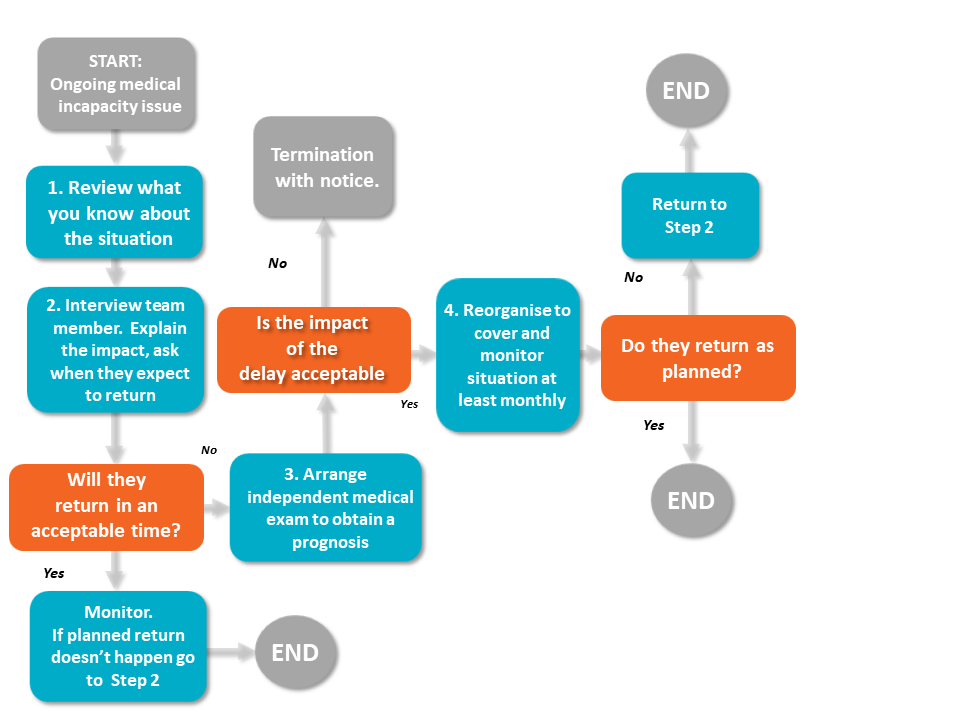How to deal with medical incapacity

2. Arrange to meet with the team member to discuss the situation. Explore the reasons for the absence and the medical advice the team member has received about a return to full normal duties. Ask the team member when he/she believes they will be able to return to work, and whether that would be on normal or restricted duties. Spell out the impact on the business of their absence/incapacity. Consider whether the period of incapacity/absence is acceptable and whether you believe the medical evidence in support is clear and reliable. Once you have received the medical evidence meet with the team member to discuss the evidence and decide what to do about their ongoing absence. Before doing so be clear how you will cope with any ongoing absence and how long you believe you can continue without the employees services. Factors you should take into account include;
- How long is the expected absence and how certain is the prognosis of a return
at the end of that period? - Does the team member hold a key role that can’t reasonably be covered for the
likely duration of absence? If so, a short period of tolerance is appropriate. - How long has the person been employed. Long-standing relationships usually require
a more tolerant stance. - Did you know of the incapacity/potential incapacity when you hired the team member?
(If so more tolerance might be reasonable) - Did we contribute to the situation (i.e. work related accident or stress)?
- Is there or alternative work during rehabilitation?
If the prognosis is that the absence is likely to be ongoing, terminating the team member’s employment on notice will be justified. Take a break to consider your decision.